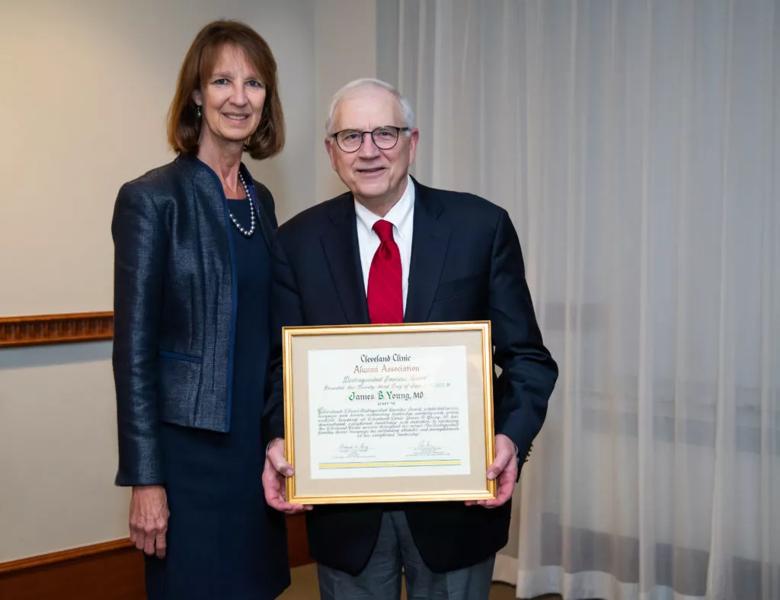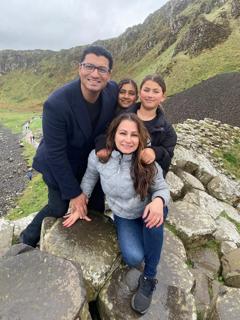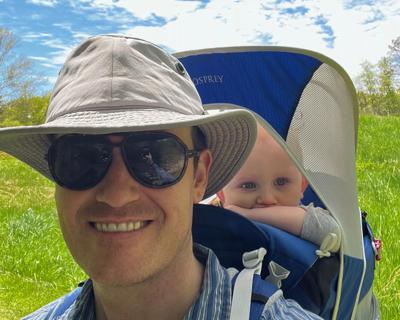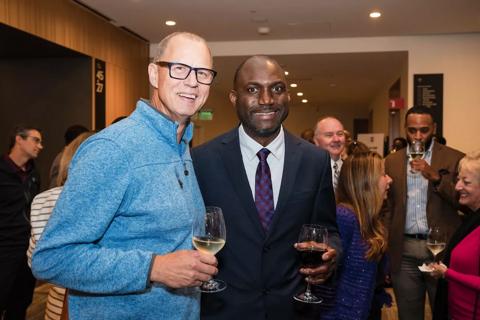
Image content: This image is available to view online.
View image online (https://assets.clevelandclinic.org/transform/31a8124c-5a15-424f-aadb-8626a7faf17b/PHI_3227009_09-23-22_119_AMO-Edit-1024x788_jpg)
Dr. Susan Rehm posing with
Dr. Young after presenting him his award during the fall alumni award ceremony.
Advertisement
Cleveland Clinic is a non-profit academic medical center. Advertising on our site helps support our mission. We do not endorse non-Cleveland Clinic products or services. Policy
James B. Young, MD (Staff’95), says he was surprised to be selected as the first recipient of the Alumni Association Distinguished Emeritus Award.
“There have been so many great Cleveland Clinic staff before me,” he says. “This is an extreme honor, and I am so very appreciative.”
Cleveland Clinic has surprised him in other ways, as well. “When I first started there, I was amazed by how Cleveland Clinic capitalized on its interprofessional relationships with ancillary personnel and nursing staff,” he says. “I was stunned by the skill levels of the nurses in the cardiothoracic laboratory. They were extraordinary.”
Dr. Young was recruited in 1995 from The Methodist Hospital in Houston – where he was Clinical Coordinator and Scientific Director of Michael E. Debakey’s Multi-organ Transplant Center – to head Cleveland Clinic’s Section of Heart Failure and Cardiac Transplant Medicine. He went on to hold numerous leadership positions, including Vice-Chairman of the Department of Cardiovascular Disease, Chair of the Division of Medicine, Chair of the Endocrinology and Metabolism Institute, Executive Director of Academic Affairs, Executive Dean of the Cleveland Clinic Lerner College of Medicine, and Physician Director of the Philanthropy Institute. He also held the George M. and Linda H. Kaufman Endowed Chair and co-founded the Kaufman Center for Heart Failure, serving as its Medical Director.
During his career at Cleveland Clinic, he watched the nursing profession evolve to include clinical nurse practitioners and physician assistants. He also was on the front lines of Cleveland Clinic’s cultural shift when all who worked there became known as “caregivers.”
Advertisement
“Some physicians objected to the term ‘caregivers’ when it was introduced under the leadership of Toby Cosgrove and now Tom Mihaljevic,” he says. “But this term has become important because we are all caregivers.”
In 2008, as a member of the Executive Management Team, Dr. Young was an architect of another major change initiated by Dr. Cosgrove, a reorganization from divisions into institutes.
“Traditionally, academic medical centers have departments, sections and divisions,” he says. “‘Divisions’ is a military term that I never really liked because it means ‘to divide,’ and I’m a big believer in team work and crossing over boundaries. The Heart, Vascular and Thoracic Surgery Institute is a perfect example of not dividing but bringing teams together.”
He likens such teamwork to a rugby scrum. “The point is to put your arms around your team. You don’t have to agree with everyone all the time, but it’s incredibly important to be able to disagree with somebody without becoming disagreeable. I learned this decades ago, and it’s helped me a lot in leadership roles.”
As Cleveland Clinic moved to institutes, Dr. Young had another surprise when he found himself in a new and unusual role for a cardiologist: Chair of the Endocrinology and Metabolism Institute. In fact, the role was not so far-fetched, he says, because he was respected as Chair of the Division of Medicine and interim chair of Endocrinology before being selected by the Board of Governors for this position. In addition, “I had a huge interest in diabetes, as it is so intimately linked to cardiac disease.”
Advertisement
When Dr. Young retired in June 2022, Randall Starling MD, MPH (Staff’95), who worked closely with Dr. Young, was quoted in a Cleveland Clinic news story as saying that with Dr. Young’s support, the Cleveland Clinic Heart Failure program became one of the most respected and productive heart failure programs in the world. “Dr. Young has always had a ‘can-do’ attitude,” he said. “His persistence and commitment are inspiring.”
For all of his accomplishments, Dr. Young notes “the one thing near and dear to my heart” was incorporating the humanities into the program at the Lerner College of Medicine. As Executive Dean of CCLCM, Dr. Young says, “I focused on the art and practice of medicine as a course and developed a robust humanities program to teach empathy and how to be good partners and teammates. Having the humanities and medicine in art and practice is fun, and the students appreciate it.”
He recently returned as Emeritus Professor of Medicine and a contract staff member. “I will focus on the school of medicine curriculum and keep my thumb in the humanities-and-medicine thread,” he says. “There are a lot of opportunities, and I have a passion for the humanities.”
Advertisement
Advertisement

Honoring Exceptional Achievement, Service and Leadership

We celebrate the exceptional achievements of four future alumni

Honoring Exceptional Achievement and Leadership

Meet Hardeep Phull, MD (CCLCM’11)

Meet William Tierney, MD, MS (CCLCM’16, OTO’18)

Meet Samuel Omotoye, MD (CARD/E'15)